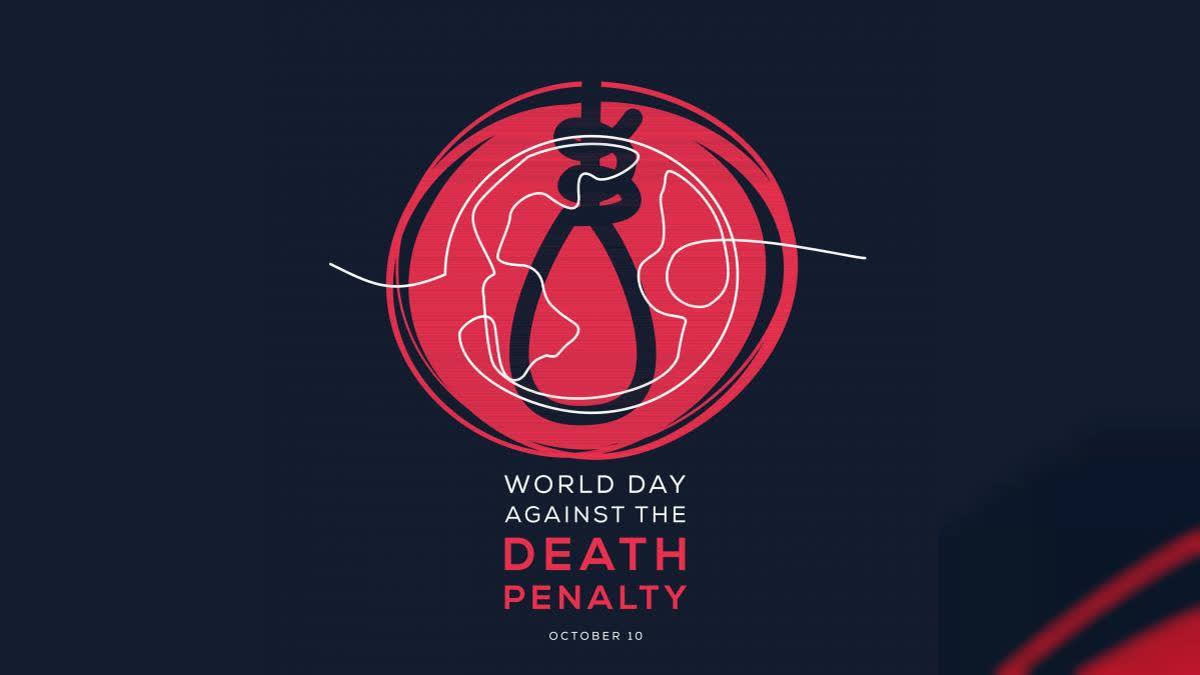Hyderabad: The Global Day Against the Death Penalty, celebrated annually on 10 October, brings together the worldwide movement against capital punishment, rallying support from civil society, politicians, legal professionals, and the general public to push for the complete abolition of the death penalty.
Each day, individuals are subject to capital punishment by the government as a consequence for different offences, at times for actions that should not be considered illegal. In certain nations, this severe punishment may be imposed for crimes related to drugs, while in others it is specifically for acts involving terrorism and murder.
In 2023, the countries with the highest number of executions were China, Iran, Saudi Arabia, Somalia and the USA.
History of the day:
In 2003, WCADP designated October 10th as the World Day against the Death Penalty, with the purpose of strengthening the global movement against capital punishment to influence public opinion and government bodies and to push all countries to eliminate death penalty laws and practices.
Early Death Penalty: The first established death penalty laws date as far back as the Eighteenth Century BCE in the Code of King Hammaurabi of Babylon, which codified the death penalty for 25 different crimes. Death sentences were carried out by such means as crucifixion, drowning, beating to death, burning alive, and impalement.
Abolished Death Penalty: The elimination of the death penalty commenced in the Americas. Venezuela became the first country to eliminate the death penalty in 1863, with six of the top eight nations in the Americas also being abolitionist by the establishment of the United Nations in 1945.
Since 1977, there has been a steady rise in countries in the Americas that have abolished slavery. Except for the United States, the area has not had any executions since 2009.
From the early 1980s onwards, there has been a worldwide effort to eliminate the death penalty, which is still ongoing. The death penalty has declined dramatically around the world in recent years. Since 1976, over 85 nations have abolished the death penalty for all crimes, while others have abolished it for ordinary crimes.
Significance of the day:
The day brings attention to the plight of prisoners on death row and to push for the end of the death penalty.
The day encourages and consolidates the political and general awareness of the worldwide movement against the death penalty.
Many NGOs and world governments, such as Amnesty International, the European Union, and the United Nations, endorse the day.
Aims of the day include:
Increasing public knowledge about the circumstances of individuals on death row.
Galvanizing political leaders, civil society, attorneys, and public opinion
Backing the plea for worldwide elimination of the death penalty.
Concentrating on women who have been either sentenced to death, executed, or had their sentence commuted, exonerated, or pardoned.
Every year, the focus is on a particular theme to bring attention to specific issues related to the death penalty.
What is Death Penalty in India?
The highest form of punishment in India, known as capital punishment or the death penalty, is only administered in extremely rare instances. It is the execution of a person by the government as a form of punishment for a crime. Capital punishment is enforced in accordance with the Indian Penal Code, 1860 as well as various other legislations such as the Army Act, 1950, the Air Force Act, 1950, and the Navy Act, 1956. The most recent executions in India occurred in March 2020, with four individuals executed for the 2012 Delhi gang rape and murder.
The major reasons why capital punishment should be abolished in India:
According to the Law Commission are:
Times have changed
It is not a deterrent anymore
Sentencing is arbitrary
Administration of capital punishment is vulnerable to misapplication
Mercy powers have failed to act as the final safeguard against miscarriage of justice
Long delays in trials and appeals and final execution is almost torture.
UN Human Rights on the death penalty:
The UN Human Rights Office (OHCHR) has long opposed the death penalty, and advocates for its abolition worldwide. The OHCHR's position is based on the following:
The fundamental right is the right to life.
There is a risk that is not acceptable of innocent people being executed.
There is no proof that capital punishment prevents criminal behaviour.
The OHCHR collaborates with states and institutions to eliminate the death penalty, establish moratoriums on its use, and dispel myths about its use.
Countries Abolished the death penalty:
As of May 2023, 112 countries have abolished the death penalty for all crimes, including Kazakhstan, Papua New Guinea, Sierra Leone, Central African Republic, The Philippines, Haiti, Liechtenstein, German Democratic Republic, Cambodia, New Zealand, and Romania, Andorra, Czech, Slovak Federative Republic, Hungary, Ireland, Mozambique, Namibia, and São Tomé and Príncipe.
Other countries have abolished the death penalty for certain crimes, including:
Equatorial Guinea, Zambia, Malaysia, Ghana, Argentina, Cyprus And El Salvador, Brazil, Fiji, And Peru.



